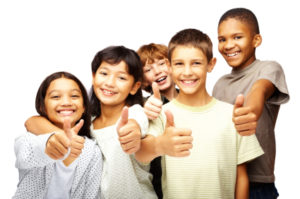Hormonal Teenagers And Talking
April 8th, 2015 Updated 4-8-2017
Thank you Christy Rose and Yolanda Gibson for the suggestion.
 I’ve read over 30 articles for this blog. Partly because I had to approach it from 2 different angles and partly because I’m the father of a 14 year old girl and the articles really sucked me in. 1st approach; “hormonal teens”. There’s a lot of information on what’s happening physically with our teens but not much on communicating with them during this change. So that brings about approach number 2, “how to talk to kids”. By combining the 2 I’ve come to realize it’s like dealing with a pre-verbal baby only they have an arsenal of words and behaviors (slamming the door) that they didn’t have before. The intensity of the emotions they experience is off the charts.
I’ve read over 30 articles for this blog. Partly because I had to approach it from 2 different angles and partly because I’m the father of a 14 year old girl and the articles really sucked me in. 1st approach; “hormonal teens”. There’s a lot of information on what’s happening physically with our teens but not much on communicating with them during this change. So that brings about approach number 2, “how to talk to kids”. By combining the 2 I’ve come to realize it’s like dealing with a pre-verbal baby only they have an arsenal of words and behaviors (slamming the door) that they didn’t have before. The intensity of the emotions they experience is off the charts.

If your child is anything like my daughter many of the suggestions in these articles won’t always work because she’s so introverted. She just doesn’t like to speak about her feelings so I keep chipping away as best I can. The groundwork for speaking with your pubescent teen starts by employing strategy. They should be encouraged to talk to us from the time that they’re actually able to talk. I think I’ve done an OK job with my daughter but no matter the job any of us have done we’d have done it better if Occupational Parenting was a reality. Some people find that difficult to believe because they’ve done such an awesome job with their kids and others because they’ve done so poorly that they feel that nothing would help. At any rate our children all have to interact with each other and so will their children and so on. It would be great if we knew that they’d all mingling with happy healthy individuals and not have to worry about bad influences.
 Though many experts, according to Changes — Helping Your Child Through Early Adolescence, believe that the hormonal effect is exaggerated. The article does give credence to role the environment can play. The Rule of Guarded Group Individualism on The Environment page of my own web site takes a look at the balancing act one must do to maintain their relationships. I do think Hormonal Teenagers (my brutal opinion) down plays these physical changes too much. I really wish the author would have said more but he’s trying to sell a book and doesn’t want to give it away.
Though many experts, according to Changes — Helping Your Child Through Early Adolescence, believe that the hormonal effect is exaggerated. The article does give credence to role the environment can play. The Rule of Guarded Group Individualism on The Environment page of my own web site takes a look at the balancing act one must do to maintain their relationships. I do think Hormonal Teenagers (my brutal opinion) down plays these physical changes too much. I really wish the author would have said more but he’s trying to sell a book and doesn’t want to give it away.
Now lets look at some articles that think the bodily changes of teens is a big deal. Teenage Hormones and Sexuality is one such page. Raging Hormones: Helping and Understanding Your Child (Link has been changed) is concerned with the communication process.
 Many recognize puberty as a period when individuals want to or will experiment with high risk behavior. This is worrisome for me and the way I handle it may or may not be advice worthy. Only time will tell. I mention my own experiences and disillusionment with risky behaviors to my daughter. If she just can’t track with direct conversation. I speak to her mother in passing so that she hears it indirectly. I express how there’s really no reason for teen pregnancy or contracting a STD when condoms are so readily available. I tell her, as she reluctantly listens, that the worst consequence of drunk driving is death; hers, someone elses or both. When she watches the news or goes on the internet what I’ve told her is confirmed.
Many recognize puberty as a period when individuals want to or will experiment with high risk behavior. This is worrisome for me and the way I handle it may or may not be advice worthy. Only time will tell. I mention my own experiences and disillusionment with risky behaviors to my daughter. If she just can’t track with direct conversation. I speak to her mother in passing so that she hears it indirectly. I express how there’s really no reason for teen pregnancy or contracting a STD when condoms are so readily available. I tell her, as she reluctantly listens, that the worst consequence of drunk driving is death; hers, someone elses or both. When she watches the news or goes on the internet what I’ve told her is confirmed.
 For me peer pressure was a huge factor in my behavior which means she may have an inclination to go along with friends or the crowd. She also has her mother’s genes (Thank God) and her mother has always been able to say no. We try to guide her socially by offering a ride, no questions asked, so there will never be a reason on our part for her to drive while intoxicated or get into a car with a driver who is under the influence. We encourage her to have friends over and we fit the bill for supper even if there’s 5 or 6 of them. We want her to experience a fun time with her friends when alcohol and drugs are not present. For example, my daughter wanted to paint her room for the 3rd time in 3 years. We let her because we want her to know that she has the power to manipulate her environment (within reason) and it’s not hurting anyone. The point is she had about five friends over for a paint party. They had a great time and they normally do. Eventually I wound up doing most of the work but obviously that’s not the important part. We do a lot for her and let her do a lot. That’s good for many reasons. (1) When it’s time to discipline her we have something to take away. (2) We say yes to her often enough that when she hears no she’s not desensitized to it and it carries more weight. (3) When her emotional rebelliousness flares up she feels bad about treating us poorly. This kind of disrespect sometimes comes with correction and when it does deep down she knows it’s justified.
For me peer pressure was a huge factor in my behavior which means she may have an inclination to go along with friends or the crowd. She also has her mother’s genes (Thank God) and her mother has always been able to say no. We try to guide her socially by offering a ride, no questions asked, so there will never be a reason on our part for her to drive while intoxicated or get into a car with a driver who is under the influence. We encourage her to have friends over and we fit the bill for supper even if there’s 5 or 6 of them. We want her to experience a fun time with her friends when alcohol and drugs are not present. For example, my daughter wanted to paint her room for the 3rd time in 3 years. We let her because we want her to know that she has the power to manipulate her environment (within reason) and it’s not hurting anyone. The point is she had about five friends over for a paint party. They had a great time and they normally do. Eventually I wound up doing most of the work but obviously that’s not the important part. We do a lot for her and let her do a lot. That’s good for many reasons. (1) When it’s time to discipline her we have something to take away. (2) We say yes to her often enough that when she hears no she’s not desensitized to it and it carries more weight. (3) When her emotional rebelliousness flares up she feels bad about treating us poorly. This kind of disrespect sometimes comes with correction and when it does deep down she knows it’s justified.
 This blog is becoming lengthy so I want to introduce a few more links before I end it. I like this site TeensHealth because they have 3 tabs; one for parents, one for teens, and one for kids. Teen Growth & Development, Years 11 to 14 breaks down adolescent changes into stages and offers tips for parents at the end. I’m a little steamed that What Every Mom Should Know About Puberty, Teens and Hormones exclusively mentions moms because I’m a male home keeper. I like, however, fact that teens are dubbed tweens; how appropriate. There are many other articles about pubescent change. I’m not going to site all of them. Ask Google and you can find quite a few.
This blog is becoming lengthy so I want to introduce a few more links before I end it. I like this site TeensHealth because they have 3 tabs; one for parents, one for teens, and one for kids. Teen Growth & Development, Years 11 to 14 breaks down adolescent changes into stages and offers tips for parents at the end. I’m a little steamed that What Every Mom Should Know About Puberty, Teens and Hormones exclusively mentions moms because I’m a male home keeper. I like, however, fact that teens are dubbed tweens; how appropriate. There are many other articles about pubescent change. I’m not going to site all of them. Ask Google and you can find quite a few.
Communicating with our children during this time really can be like working with a toddler that’s just learned to reason. Talking With Your Kids Before Everyone Else Does (Link as been changed) lists issues that you may want to speak to your children about. Strategies for Talking with Kids has a lot of information and is very thorough. Well worth the read.
The probability is that while some teens are relatively unaffected by their hormonal changes others are controlled by them which looks very out of control. With all the shades in between these 2 different types of teens it’s important to identify where your child is and no matter where they are you have to be able to communicate with them. With all the articles I’ve sited and my personal experience I hope you’ve found the answer to any questions you may have had about communicating with your hormonal teen. Until next time, keep your homes well.
Welcome Occupational Parenting Health and Happiness The Human Element The Perceivable Universe The Environment Word Play Conclusion Glossary In The Kitchen Pets Tips Cleaning Tips Parenting Tips Blog
